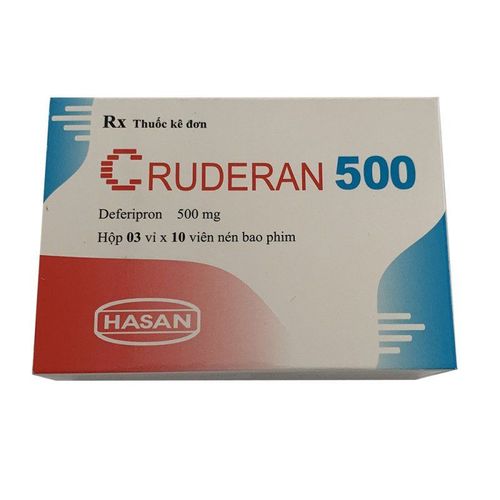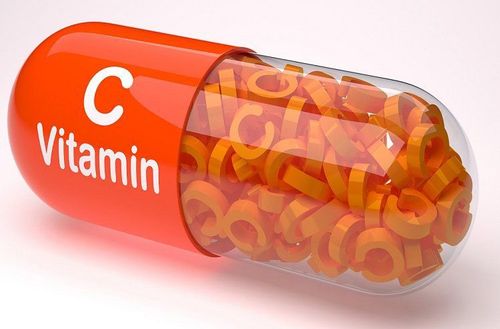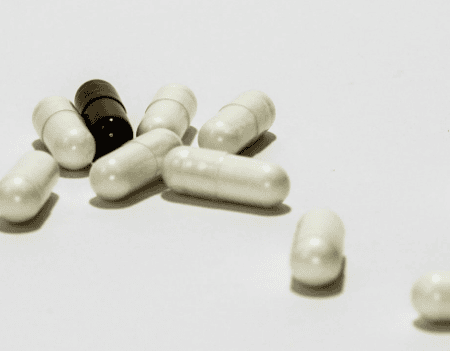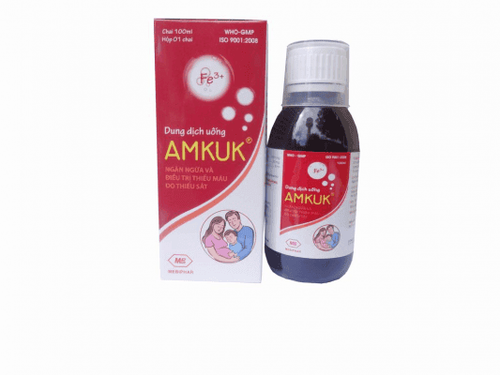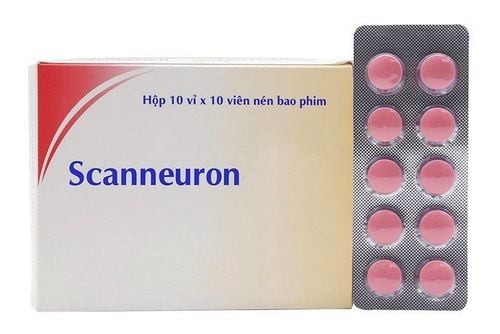This is an automatically translated article.
A T Ascorbic medicine is a type of vitamin C, used to supplement vitamin C for cases of vitamin C deficiency. So how should A T Ascorbic be used?
1. What is A T Ascorbic?
The main ingredient A T Ascorbic medicine contains vitamin C (ascorbic acid), with a concentration of 100mg/5ml, prepared in the form of an oral solution, each tube contains 5ml or 10ml of drug solution.This medicine is used to supplement Vitamin C for the body, to help prevent and treat Scurvy.
2. What are the effects of A T Ascorbic?
A T Ascorbic contains vitamin C, which is an important substance involved in many metabolic processes of the body.
Vitamin C participates in the process of creating collagen and some other components that make up connective tissue in bones, teeth, blood vessels. Therefore, if vitamin C is deficient, the blood vessel wall is unstable, causing bleeding gums or periosteum, swollen gums... Involved in the metabolism of body substances such as lipid, glucide, protid metabolism. Participating in the synthesis of a number of substances as important to the body as catecholamines, adrenocortical hormones. Catalyze for the process of converting Fe3+ to Fe2+, so it helps the body absorb iron in the duodenum. Therefore, if the body is deficient in vitamin C, it will cause iron deficiency anemia. Increase the production of interferon, reduce the body's sensitivity to histamine, fight stress, help increase the body's resistance. Antioxidant by reducing the effects of free radicals produced by metabolic reactions, thereby preserving the integrity of cell membranes. Vitamin C is a substance that cannot be stored in the body, so we need to supplement it regularly to avoid vitamin C deficiency.
3. Dosage and dosage of A T Ascorbic
How to use: The drug is taken orally.
Dosage:
Children:
Add vitamin C to the diet: Dosage varies from 35-100 mg/day equivalent to taking 1⁄2 - 1 ampoule of 5ml/day. Prevention and treatment of scurvy: The dose of vitamin C is 100-300 mg/day, which means taking 1-3 ampoules of 5ml/day, divided into several times. Adults
Add vitamin C to the daily diet: The dose can vary from 50 - 200 mg/day which means taking 1/2 - 2 ampoules of 5ml/day. Prevention and treatment of scurvy: The dose of vitamin C needed is 100-250mg/time, which means taking 1 - 2.5 ampoules of 5ml/time, taking 1-2 times/day. Overdose and missed dose:
Overdose: May cause metabolic acidosis or hemolytic anemia in patients with G6PD deficiency. Taking too large a dose can cause kidney failure. The way to handle overdose is to immediately go to a medical facility for early gastric lavage and supportive treatment drugs. Missed dose: If you forget to take a dose, take it as soon as you remember. If it is almost time for your next dose, skip the missed dose and take your next dose at the scheduled time.
4. Contraindications to taking A T ascorbic acid
Contraindicated to use A.T Ascorbic syrup An in the following cases:
Use high doses of vitamin C for people with G6PD deficiency because of the risk of hemolytic anemia. People with a history of kidney stones, hyperoxaluria and oxalate metabolism disorders because of the increased risk of kidney stones. People with thalassemia, because it increases the risk of iron absorption causing iron overload. Do not use in patients who are allergic to any of the ingredients.
5. Side effects of A T Ascorbic
When using A T Ascorbic you may experience unwanted effects including:
Digestive disorders can occur when you take high doses of vitamin C (high doses are calculated as 1g daily or more). Increased oxaluria, nausea and vomiting, abdominal cramps, fatigue, insomnia or frequent drowsiness, hemolytic anemia may occur when taking vitamin C. Inform your doctor or pharmacist immediately when you: side effects when using the drug.
6. Things to keep in mind when taking A T Ascorbic
Before using the drug, carefully read the instructions for use, notify the doctor if you are allergic to any of the ingredients of the drug and the medical conditions you encounter.
Taking high doses of vitamin C can cause hyperoxaluria, deep vein thrombosis.
Vitamin C can acidify the urine, sometimes leading to precipitation of urate or cystin, or oxalate stones.
In the composition of the drug contains sorbitol, sucrose, if the patient is intolerant to some sugars, please inform your doctor before using the drug. In addition, in the composition of the drug contains yellow excipients tartrazine and excipients sodium metabisulfite can cause allergic reactions and bronchospasm but rarely.
Precautions for use in pregnant women: Vitamin C can cross the placenta. Taking large doses of vitamin C during pregnancy can increase the need for vitamin C and may lead to scurvy in the baby. new-born.
For breastfeeding women, it can still be used as a daily dose of vitamin C for the body.
7. Drug interactions A T Ascorbic
Some drugs can cause drug interactions when used concurrently, including:
Concomitant use of vitamin C with elemental iron increases iron absorption through the gastrointestinal tract. However, most of them are able to fully absorb oral iron into the body without having to take vitamin C at the same time. Concomitant use of vitamin C with aspirin increases vitamin C excretion and reduces excretion. aspirin in urine. Concomitant administration of vitamin C and fluphenazine leads to a decrease in plasma fluphenazine concentrations. Because the acidification of urine following vitamin C administration may alter the excretion of some other drugs that are excreted in relation to urine pH. High doses of vitamin C can lead to the breakdown of vitamin B12. It is recommended that patients avoid taking high doses of vitamin C within an hour before or after taking vitamin B12. Storage: Vitamin C may gradually darken when exposed to light and during storage. Vitamin C solution is oxidized quickly in the air and alkaline environment, so it should be stored in a dry place, protected from light, at a temperature below 30 degrees Celsius. Do not use when the drug has changed color.
Vitamin C is an essential daily supplement. You should supplement through a diet fortified with green vegetables and fruits. When it is not enough through the diet, you can provide it through medicinal preparations. However, you should consult your doctor and pharmacist before taking it.
Please dial HOTLINE for more information or register for an appointment HERE. Download MyVinmec app to make appointments faster and to manage your bookings easily.




